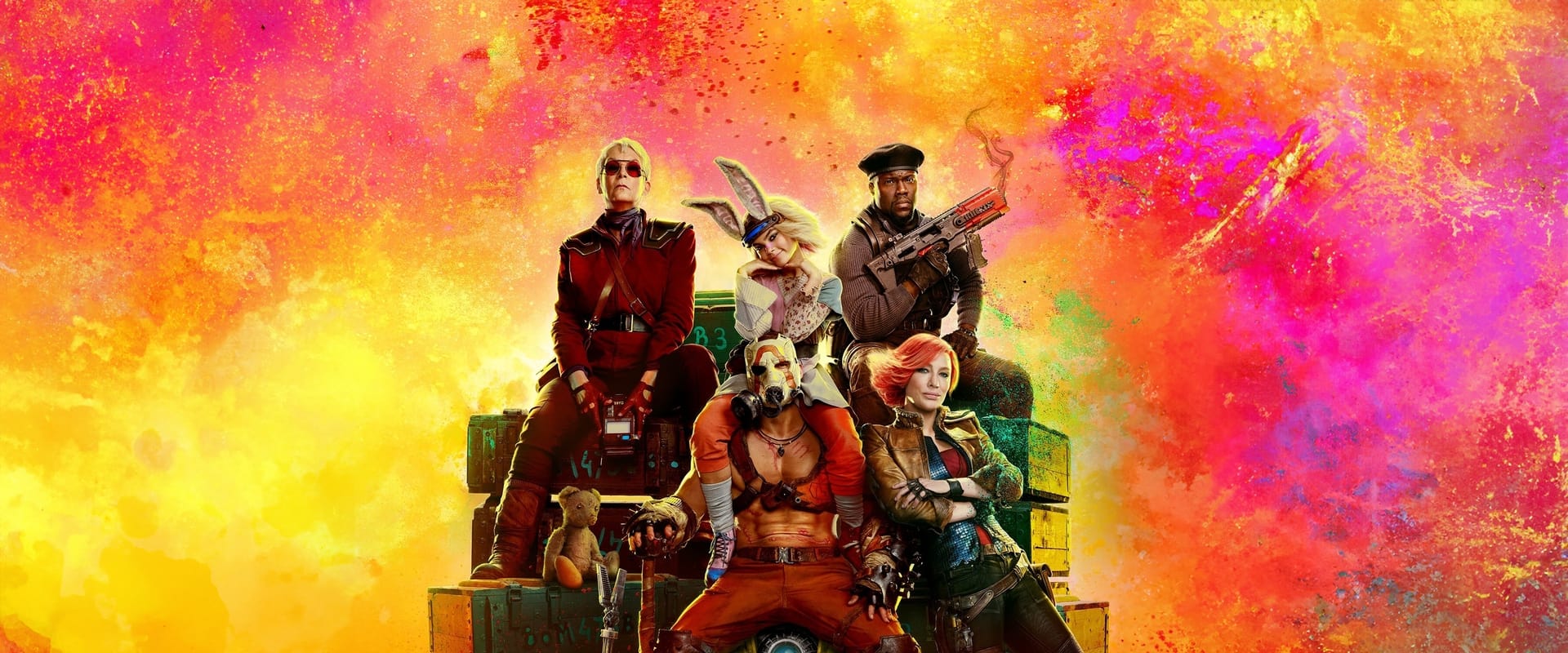By all rights, Borderlands should have been a pyrotechnic delight—a giddy, over-caffeinated bullet-train of pulp chaos and gonzo world-building, driven by the acid irreverence of its video game namesake. Instead, what Eli Roth has delivered is an improbable feat: a science fiction action comedy that is simultaneously cacophonous and catatonically dull. Sitting there, under the suffocating weight of so much squandered star power, I found myself awash in a unique mixture of irritation and melancholy—a sort of cinematic Stockholm syndrome, except nobody falls in love with the captor. I simply prayed for release.
Let’s begin, if such a journey can be mapped in the fog. The plot—such as it is—follows Cate Blanchett’s Lilith, an outlaw who assembles a ragtag batch of misfits on the lawless sandbox that is Pandora. The apparent objective: rescue the genetically spiced Tiny Tina from the chrome talons of a corporate warlord named Atlas. But from the opening scene, Roth's direction flounders like a fish yanked from the muddy waters of inspiration—and left to flop, dry-mouthed, before a jeering crowd. This is storytelling made not of connective tissue but of errant, unmoored set pieces, stitched together with the conviction of a director praying that sheer velocity could make us forget to ask—why any of this?
Confusion reigns but not in the good way—the exhilarating, propulsive fog of a Mad Max: Fury Road. Here, narrative murk is just an unending screenplay traffic jam. I sat, desperate for clarity, as one action sequence crashed, uninvited, into the next. Instead of adrenaline, I was marooned in a fog of weary indifference—a feat unto itself. For those fortunate enough never to have encountered the exhaustive lore of Borderlands the game, the experience is akin to sprinting through a carnival funhouse in the dark, tripping over lore dumps and plot fragments like loose Monopoly pieces scattered in a blackout.
Let’s talk faith—because you’d have to be steeped in it to believe this cast could be so thoroughly marooned. Cate Blanchett: a performer of luminous versatility, here reduced to reciting bad one-liners with the emotional commitment of someone dictating a shopping list. Jamie Lee Curtis fades in and out, as if drowsy from jet lag, her role a faint echo of anything resembling a human being. Even Kevin Hart—one of the great vaudevillian dynamos of our generation—is left stranded. Hart’s performance shoots for transformation and lands somewhere shy of “bewildered.” His presence is less a shift in register, more an off-key note played with exquisite embarrassment.
And then there is Jack Black, the house’s last hope. As the tin-pot sidekick Claptrap, Black flirts with something approaching a living, breathing character, but can only muster a few stray sparks in a stew of mediocrity. He deserves better material—or at the very least, a script where the punchlines don’t fizzle into the cavernous silence of a theater collectively unamused.
Is it too much to ask that a film based on a riotous, anarchic video game look alive? Roth’s Pandoran wasteland is a nowhere of colorless CGI, the sort of quasi-digital thunderdome where the excitement has been sanitized for all audiences—and thus, none. The combat sequences, such as they are, bristle with clichés, drafted from some interminable studio memo on “Action Movie Moments.” Perhaps there is visual spectacle buried somewhere in this morass, but those moments are so burdened by indifference they might as well be public safety announcements.
The script—if this was an act of writing rather than a series of conference calls—might have approached camp. Instead, it pummels us with dialogue that clangs and thuds, hollow as a spent shell. There is exposition delivered with all the subtlety of concrete poured into a glass of water. The jokes whimper, the banter is as forced as a tax audit, and the emotional arcs are so robotic you expect the cast to self-destruct in a cloud of sparks. Only Black snags a laugh here and there; the rest of the cast seems abandoned, like theme-park animatronics after hours.
What can be said in faint praise? The score, against all odds, occasionally manages to drag a sense of urgency from the proceedings. I clung to those swelling cues, hoping for transcendence. When the music crested, I mourned not for the film’s triumph, but for what could have been—a great score denied a worthy companion. In this desert, even faint relief must be prized.
If there are themes—camaraderie, loyalty, wild abandon—they are conjured up like ghostly mirages. Now and then, the movie gestures at real feeling or grand adventure, but each attempt lands with the spontaneity of a taxidermied bear at a child’s birthday party. You’d think Borderlands—with its blaring neon palette and bullet-riddled antiheroics—would find some pulse in chaos. Yet, for all its frantic noise, not a single heartbeat makes it through the screen.
In the end, what does Roth’s Borderlands give us? A distress signal, beamed from an overfunded, underbaked blockbuster—its cast stranded and waving, begging for a better script. It is a Mad Max simulacrum drained of wit and fury, a how-to primer in turning creative possibility into dreary box office detritus. Save yourself: skip the spectacle. Your sock drawer needs organizing, and it has a better plot.


